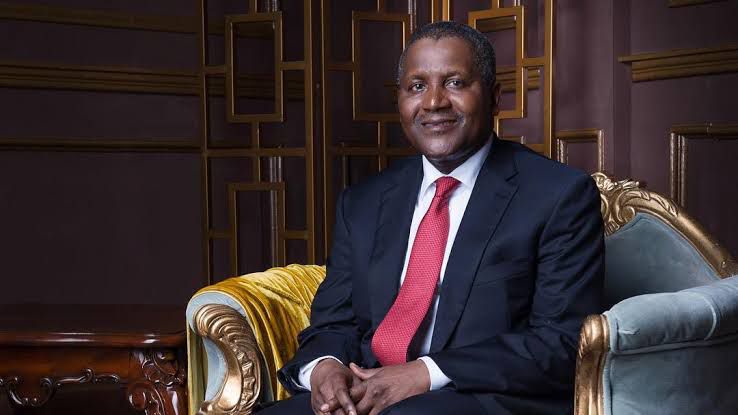Fuel importers in Nigeria may suffer losses amounting to N13.998 billion monthly following a fresh price cut by Dangote Petroleum Refinery, which significantly undercuts the cost of imported fuel.
Last week, Dangote Refinery reduced the ex-depot price of its Premium Motor Spirit (PMS) from N865 to N835 per litre, marking its third price adjustment in six weeks. The reduction has put importers at a disadvantage, as the landing cost of imported petrol now stands at N868.33 per litre—a N33.33 difference compared to Dangote’s revised ex-depot price.
The sharp price disparity has placed enormous pressure on fuel importers, particularly members of the Depot and Petroleum Products Marketers Association of Nigeria (DAPPMAN), who are now on track to lose an estimated N466.62 million daily. With daily consumption pegged at 50 million litres by the Nigerian Midstream and Downstream Petroleum Regulatory Authority (NMDPRA), importers may be forced to sell below cost or risk losing market share to cheaper, locally refined fuel.
Though this potential loss is a sharp reduction—down 81% from the N2.5 billion daily and N75 billion monthly losses reported in March—it reflects a broader shift in Nigeria’s petroleum supply chain. Industry players say the Dangote Refinery is asserting pricing control, gradually displacing importers through consistent price advantages.
Confirming its latest price cut, Dangote stated that PMS would now retail at reduced pump prices nationwide through its partner distributors. In Lagos, petrol will now be sold at N890 per litre, down from N920. In the South-West, the new price is N900, down from N930. In the North-West and North-Central, prices are now N910, down from N940, while the South-East, South-South, and North-East will see retail prices drop to N920 from N950.

While consumers may welcome the relief, downstream operators are feeling the squeeze. Independent Petroleum Marketers Association of Nigeria (IPMAN) spokesperson, Chinedu Ukadike, welcomed the price drop for consumers but expressed concern that marketers holding older, higher-priced stocks would incur major losses.
“It is a good development for Nigerians; however, marketers with old price stock will have to lose billions of naira. It is affecting marketers, but based on the naira-for-crude, the effect must be reflected in the pump price,” Ukadike said.
Further complicating matters, Nigeria’s petrol import volume has dropped drastically. According to the NMDPRA, importation has fallen from 44.6 million litres per day in August 2024 to 14.7 million litres as of April 13, 2025. This is attributed to the phased restart of the Port Harcourt Refinery and increased output from modular refineries across Nigeria, shifting reliance toward domestic supply.
With the average imported fuel landing at N868.33 per litre, a daily volume of 14 million litres would cost importers about N12.17 billion, compared to N11.69 billion if sourced from Dangote. This translates to a daily loss of N466.62 million, potentially reaching nearly N14 billion monthly.
Industry insiders warn that these recurring losses could push importers out of business unless they pivot toward local refining strategies. The Crude Oil Refinery Owners Association of Nigeria (CORAN) has openly urged marketers to re-strategize and embrace local refining. According to CORAN Publicity Secretary Eche Idoko, resistance to adaptation could lead to obsolescence in a changing energy market.
“Unfortunately, we are asking them to come so that we can re-strategise and change their business strategy so they can remain relevant when Nigeria becomes a refining hub, but they are not forthcoming,” he said. “As long as they keep to that position, at some point, they will all go out of business. Because refining in Nigeria has come to stay.”
Meanwhile, Nigerian National Petroleum Company Limited (NNPC) also announced a reduction in its petrol price from N950 to N935 per litre, slightly above Dangote’s new benchmark. While the NNPC’s price adjustment offers some relief, it still falls short of Dangote’s regional pricing, which stands at N910 per litre in the North and N890–N900 in the South.
Stakeholders in the retail segment, like Petroleum Products Retail Outlets Owners Association of Nigeria (PETROAN), have raised concerns over price instability. PETROAN President, Dr. Billy Gillis-Harry, said that erratic pricing decisions—whether due to fluctuating crude oil prices or market forces—were disruptive and unsustainable for retailers and marketers alike.
“There is no calculation that I know of in the books that would bring petrol prices back to N500, N600, or N700 per litre at the pump,” he stated. “Fluctuating prices by players and refiners are probably due to the economic environment in which they operate… But one company should not hold everyone to ransom.”
With Dangote refining now a dominant force and further price revisions expected, pressure is mounting on the government, regulatory agencies like the Federal Competition and Consumer Protection Commission (FCCPC), and the NMDPRA to maintain fair market practices and protect all stakeholders in Nigeria’s evolving downstream sector.



